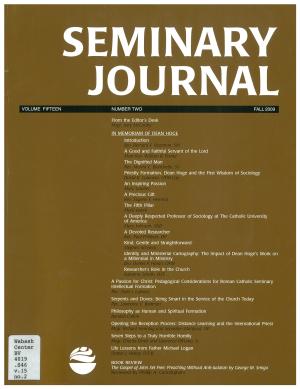Resources
The Serve Program at Ignatius University combines academic study of theology with a year-long community service project focused on combating poverty. An analysis of the Serve Program during the 2008-09 academic year revealed that participating students demonstrated a significant increase in their interest in theology; a greater desire to enroll in theology coursework; and a deeper interest in theology than classmates not participating in the service-learning program. Interviews with Serve participants revealed that their exposure to poverty and inequality through their service placements led them to read the program’s assigned theological texts with a particular focus on the authors’ messages about individual and social responsibility for struggling fellow citizens.

Journal Issue.
“Ascetic Self-discipline: George Marsden and The Outrageous Idea of Christian Scholarship Rejoinder”